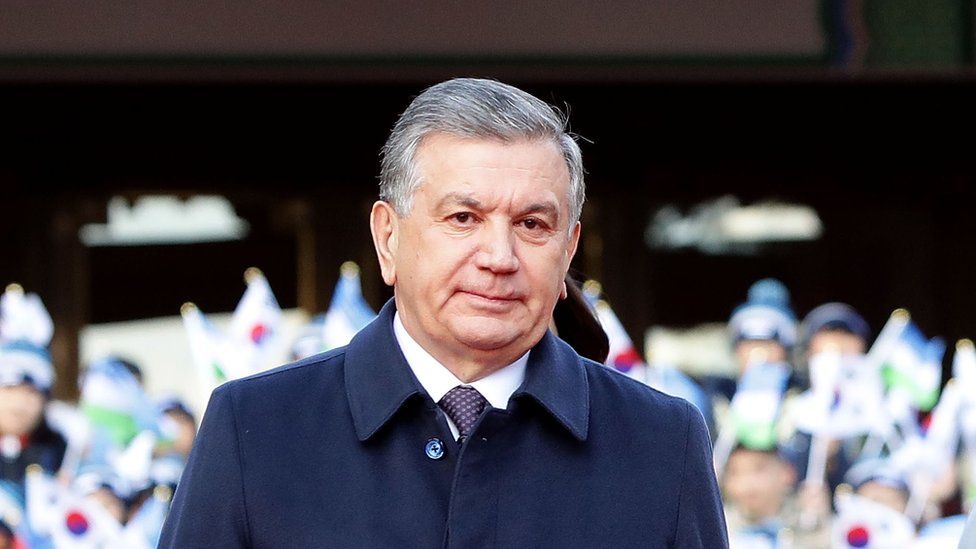In the vast and diverse realm of Central Asian politics, few figures have sparked as much interest in recent times as Uzbekistan’s President, Shavkat Mirziyoyev. Since assuming office in 2016, Mirziyoyev has embarked on a transformative journey, reshaping not only the domestic landscape of Uzbekistan but also its foreign policy dynamics. But who exactly is Shavkat Mirziyoyev, and why is his leadership generating such widespread attention? Let’s delve into the life and legacy of this noteworthy leader.
Early Life and Ascension to Power
Born in 1957 in the Jizzakh Region of what was then the Uzbek SSR, Shavkat Mirziyoyev pursued engineering and economics during his academic years. These studies would form the bedrock of his understanding of nation-building and governance.
He embarked on his political career in the late 1980s, working his way through regional governance structures. Over the years, his rise was steady, culminating in his appointment as the Prime Minister of Uzbekistan in 2003, a role he would hold for 13 years.
Upon the death of Uzbekistan’s long-serving leader, Islam Karimov, in 2016, Mirziyoyev was thrust into the spotlight, eventually assuming the role of the nation’s president.
Domestic Reforms and a Vision for the Future
One of the defining features of Mirziyoyev’s leadership has been his focus on comprehensive domestic reform. This includes areas ranging from economic liberalization and legal reforms to enhancing civic freedoms and addressing human rights concerns.
Key initiatives include:
- Economic Reforms: Efforts to diversify the economy, improve the investment climate, and reduce state involvement in various sectors have been central to Mirziyoyev’s vision. This has led to increased foreign investment and a rejuvenated private sector.
- Legal and Judicial Changes: Mirziyoyev’s administration has worked on strengthening the rule of law, emphasizing judicial independence and transparency.
- Civic Engagement: By fostering an environment where civil society can thrive, Mirziyoyev has endeavored to create a more inclusive governance model, encouraging public dialogue and citizen participation.
A New Era in Foreign Policy
Beyond domestic affairs, Mirziyoyev’s leadership is notable for ushering in a distinct shift in Uzbekistan’s foreign policy. The president emphasizes “good-neighborliness, mutual respect, and constructive cooperation” as the bedrock principles guiding the nation’s international relations.
This approach has resulted in strengthened ties with neighboring Central Asian countries, resolving long-standing border disputes, and fostering regional cooperation. Additionally, the focus has been on bolstering ties with global powers, ensuring Uzbekistan’s voice and interests are recognized on the world stage.
Challenges and The Road Ahead
While Mirziyoyev’s reform agenda has been widely acclaimed, it has not been without challenges. Critics argue that while many reforms are promising on paper, their practical implementation has been uneven. Moreover, issues like corruption, bureaucracy, and the overarching influence of certain elite groups persist.
However, the general consensus is that under Mirziyoyev’s leadership, Uzbekistan is moving in a positive direction. The nation’s global image has improved, and there is a palpable sense of optimism about the future.
Conclusion
Shavkat Mirziyoyev’s emergence as a reformist leader in Central Asia has been one of the region’s most significant developments in recent years. While the journey of transformation is undoubtedly complex, and challenges abound, the strides made under his leadership are commendable.
In understanding global geopolitics, it’s crucial to recognize and appreciate leaders like Mirziyoyev, who strive for progress, reform, and positive change. As Uzbekistan continues its journey into the future, the world watches keenly, hopeful for the Central Asian nation’s continued success and prosperity.
